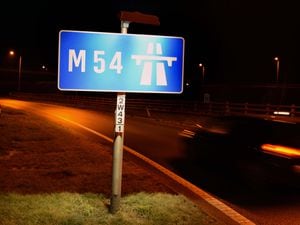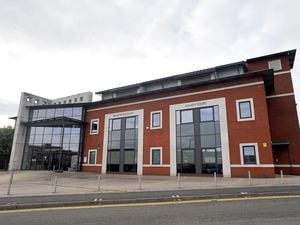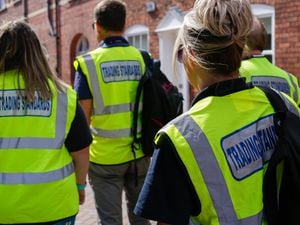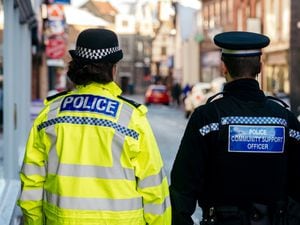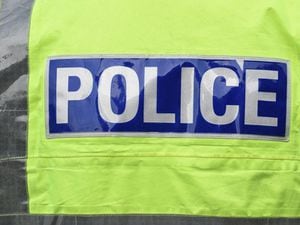Ted's tales of a Shropshire country boy for a new generation
For 84-year-old Ted Sharpe, his motivation in writing a memoir about growing up and working on a Shropshire estate has been to bring home to his grandchildren a picture of a different and disappeared world.
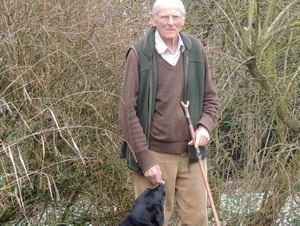
Ted was the son of the head gamekeeper on the Apley estate, between Telford and Bridgnorth, living at Apley Lodge, which still stands, not far from the village of Norton.
He now lives at Ingleby in Lincolnshire, and while he has visited Shropshire occasionally and kept in touch with a handful of old friends, he has made a point of never returning to his childhood haunts.
"I've never been back and never will, There's an old Scottish saying and it's very true – you should never go back. Things have often altered and you find things haven't altered as you would wish they would do."
His book is called Look Back 75. The 75 refers to looking back 75 years at the time he wrote it.
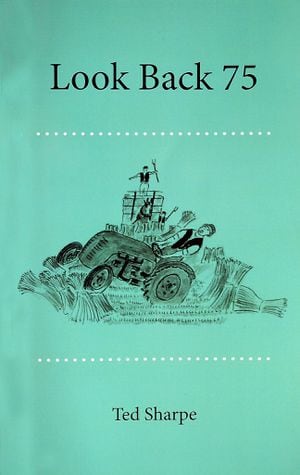
"My grandfather John Davis was farm manager on the Apley estate, and my father Norman Sharpe was the head gamekeeper.
"I started writing it really with a view to leaving a record for future generations. I think, like many people, you gradually come to realise that younger generations can't really relate to what you are talking about.
"I think it's a book of general interest for anybody to pick up interested in that period of the 1940s.
"To begin with, there was a war on. Those are my earliest recollections.
"I don't think they can quite visualise what you are talking about. For instance, in that parish I think I could count a total of 12 or 13 cars. What would the total be now – hundreds. My father had one of the old Morris 8s.
"We had an outside toilet but we were fortunate that we had hot and cold running water in the house. The majority of people did not.
"Of course, it was another world. There was the sheer quantity and variety of wildlife. The list is endless really if you go through it. For instance, where nowadays you would expect to see a few golden plovers, back then you were talking flocks of hundreds.
"In those days the farming was so totally different. We did not have spray chemicals and these vast machines which we have now.
"The best nature sanctuaries in the country were the well-keepered estates. It seems a contradiction in terms, but they didn't shoot everything wholesale – they looked after wildlife very well indeed."
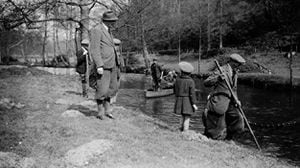
Ted went to the village school at Norton, and then to Bridgnorth Grammar School. After university and National Service, he did a post-graduate course in poultry nutrition at Reading before going into the animal feedstuffs trade as a nutritionist and moving to Lincolnshire. He and his wife went on to buy a small farm just outside Lincoln.
"I'm still working really. We farmed for a good many years. I have converted the buildings into workshops and storage facilities which we let.
"Farmers never retire. We have still got a bit of land which has to be kept an eye on."
His book is written as a collection of short true stories, covering aspects such as the war years and the old ways of farming, in which the horse had not yet been overtaken by mechanisation.
During the war aircraft were hidden in the countryside around Brockton and he cycled over and got a look inside a Wellington bomber. Apley Hall was converted into a convalescent hospital for officers but, he writes, remained empty for months despite being fully staffed and equipped.
"Then, suddenly, the imminent arrival of a patient was hot news on the local grapevine. Oh the ironies of life. Was he wounded? Was he blazes. The poor blighter had suffered a mosquito bite which had turned septic. You can imagine the hilarity it caused in the district as, needless to say, the septic bit was always omitted!"
As time passed, he said, the hall filled up and his mother began to provide bed and breakfast for wives and relatives of the inmates.
"Through it we met a great range of people, including Czechs, Poles and Canadians. It was a home from home for them and friendships were forged which long outlived the war. One still flourishes as I write."
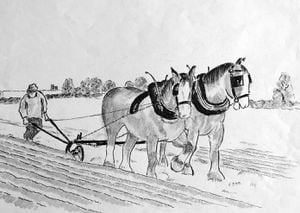
Occasionally bombs fell in the surrounding countryside, with one falling within 100 yards of his home.
Then came the arrival of the Americans, and he and his young pals would stand on the roadside yelling "any gum, chum?"
Young Ted was to learn "the Yanks drove at speed and their driving was atrocious" and he had a narrow squeak while cycling.
"With the arrival of the Yanks, Saturday nights in wartime Bridgnorth were greatly enlivened," he says.
There were inevitable brawls, at least one of which ended in fatalities from knifings.
"This was my first insight into racial tension."
Look Back 75 costs £6.99 and is available from FastPrint Publishing at fast-print.net/bookshop.
Ted says it has also been available from the estate shop at Apley.

